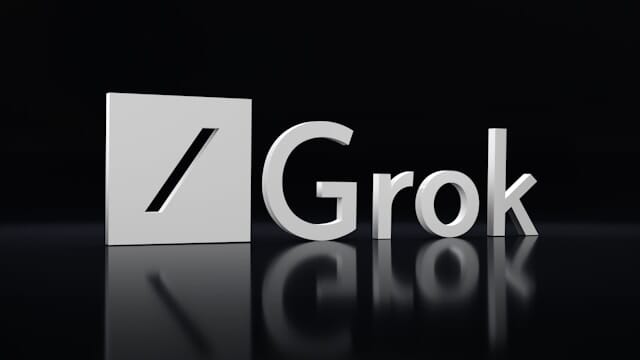In a bold move that could reshape the landscape of online information, Elon Musk has announced the development of Grokipedia through his artificial intelligence startup, xAI. This new platform aims to challenge and ultimately outrank Wikipedia, promising a "massive improvement" in accuracy, neutrality, and accessibility. Musk's declaration, made on his social media platform X, has sparked widespread discussion about the future of knowledge repositories in the digital age.
The announcement comes at a time when concerns over bias in online encyclopedias are at an all-time high. Musk, never one to shy away from controversy, positions Grokipedia as a necessary evolution in the quest for truthful information. As the CEO of xAI, he ties this project directly to the company's overarching mission of understanding the universe.
Elon Musk Grokipedia Announcement: The Details Unveiled
Elon Musk took to X on September 30, 2025, to reveal that xAI is building Grokipedia. In his post, he stated, "We are building Grokipedia @xAI. Will be a massive improvement over Wikipedia. Frankly, it is a necessary step towards the xAI goal of understanding the Universe." This succinct yet powerful message quickly garnered millions of views and thousands of interactions.
Following up, Musk encouraged talent to join the project: "Join @xAI and help build Grokipedia, an open source knowledge repository that is vastly better than Wikipedia! This will be available to the public with no limits on use." The emphasis on open source and unrestricted access highlights xAI's commitment to democratizing knowledge.
Grokipedia will be powered by Grok, xAI's advanced AI chatbot. This integration means the platform will leverage AI to automatically detect and correct errors, ensuring high levels of factual accuracy. Unlike traditional encyclopedias that rely on human editors, Grokipedia promises real-time updates and bias mitigation through algorithmic oversight.
Challenge to Wikipedia: Addressing Bias and Inaccuracies
The impetus for Grokipedia stems from longstanding criticisms of Wikipedia. Tech investor David Sacks, whose post Musk quoted, described Wikipedia as "hopelessly biased," maintained by "an army of left-wing activists" who resist corrections. Sacks pointed out that Wikipedia often tops Google search results and serves as a key data source for AI training, amplifying its potential issues.
Wikipedia co-founder Larry Sanger has echoed these sentiments, noting the platform's selective approval of sources. Liberal outlets like Mother Jones and The New York Times are deemed reliable, while conservative ones like Fox News and Breitbart are restricted to opinion pieces only.
Musk himself has a history of clashing with Wikipedia. In 2022, he criticized the rapid edits to the "recession" page amid economic debates. More recently, he urged users to withhold donations, questioning Wikipedia's spending on diversity, equity, and inclusion initiatives totaling over $50 million.
These biases, according to critics, distort information on sensitive topics, from politics to science. Grokipedia aims to counter this by prioritizing truth over ideology, using AI to cross-verify facts from diverse sources.
Grokipedia Features: AI Innovation in Knowledge Management
What sets Grokipedia apart? At its core, it's an open-source platform, meaning anyone can contribute code or content, fostering community-driven improvements. But the real game-changer is AI integration. Grok will scan entries for inaccuracies, suggest corrections, and even generate summaries based on verified data.
Imagine searching for a historical event and receiving not just text, but AI-curated timelines, visualizations, and cross-references. No more endless scrolling through biased narratives; Grokipedia promises concise, factual insights.
Accessibility is key. With no usage limits, it will be free for all, potentially disrupting Wikipedia's donation-based model. This aligns with Musk's vision of information as a public good, not a controlled resource.
xAI Mission and Grokipedia: Towards Universal Understanding
xAI's goal is to "understand the true nature of the universe." Grokipedia fits perfectly, serving as a tool for the AI to learn from vast, accurate datasets. By building a superior knowledge base, xAI enhances its models' comprehension, leading to better AI outputs across applications.
This project extends beyond competition; it's about advancing humanity's collective intelligence. Musk sees Grokipedia as essential for AI to grasp complex realities without inherited biases from existing sources.
Future of Online Encyclopedias: Grokipedia vs Wikipedia Outrank Battle
Can Grokipedia outrank Wikipedia? With Musk's resources and X's promotion, it's plausible. Wikipedia dominates search rankings, but AI-optimized content could challenge that.
If successful, Grokipedia might force Wikipedia to reform, reducing biases and improving accuracy. It could also inspire more AI-driven platforms, transforming how we access knowledge.
Challenges remain: ensuring AI doesn't introduce new biases, maintaining quality amid open contributions, and gaining user trust.
Public Reactions to Elon Musk's Grokipedia Reveal
The announcement ignited a firestorm on X. Supporters like Tom Fitton called Wikipedia a "smear machine for the Left," with Musk agreeing emphatically. Libs of TikTok labeled it a "propaganda arm for the Democratic Party."
Michael Saylor deemed it "inevitable," while Brian Roemmele stressed rejecting "status quo mentality" for innovation. Critics, like Anonymous, dismissed it as another "platform of lies."
Overall, the response reflects polarized views on information control, with many excited about a neutral alternative.
Read More
- Microsoft Crushes Major Phishing Empire: 340 Websites Seized from Nigerian Cybercriminals
- How Chinese Hackers Used BRICKSTORM Malware to Breach US Tech and Law Firms
- New Emojis Are Coming to Your Device in 2025: Get Ready to Express Yourself!
- How to Hide Your Phone IP Address: A Step-by-Step Guide to Mask Your Mobile Footprint

